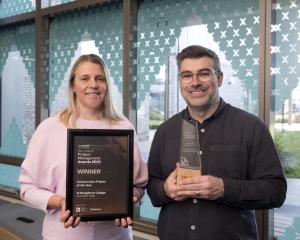The Otago Regional Council is giving $27,000 from a recently established fund to support community biodiversity efforts on Otago Peninsula.
Otago Peninsula Biodiversity Group chairman Brendon Cross said the funding for the group, from the council's Environmental Enhancement Fund, was a "very welcome development''.
The group had been responsible for removing about 9500 possums from the peninsula since 2011, to enhance biodiversity.
Even relatively modest sums were important for volunteer community groups, and gaining the council's backing was also encouraging for volunteers, he said.
Mr Cross also welcomed moves linked to the council's 2016-17 annual plan, adopted by the council on Wednesday, for $100,000 to be spent on removing wilding conifers, and for a more high-profile harbourmaster to be appointed for the Otago Harbour.
The Otago Peninsula Community Board has also long supported the proposed harbourmaster change, and moves to protect biodiversity.
Mr Cross said these and other council moves also supported community-based initiatives and reflected a wider community desire for the environment to be protected.
The peninsula funding was only the second application to be approved from the enhancement fund, council chief executive Peter Bodeker said in a report prepared for a council meeting yesterday.
The project proposal focused on further developing monitoring aspects of the group's work.
And extracting information on the wider effects of possum culling would also help with future pest control projects.
Parker Environmental was the first applicant to gain support from the fund.
And $10,000 a year, over three years, was being provided to support observations and monitoring of the New Zealand native falcon, the karearea, a species that lived successfully in plantation forests.
This review, undertaken in association with commercial forestry operators, would assess the breeding stock, survival and mortality of falcons living in pine plantations, Mr Bodeker said.
Funding was also being considered for a project, called Halo, from the Beyond Orokonui Group.
This project, supported by the council's executive management team, aims to cut predator numbers in areas beyond the Orokonui Ecosanctuary.
Detailed discussion would be held between the applicants and management team members on July 5, he said.












